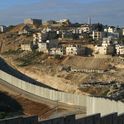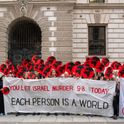The smooth transfer of power on the death of King Adullah to Salman, the new King of Saudi Arabia, has come as a relief not only to the tribal chieftans, but to dozens of world leaders, including President Obama, who would have much to lose from instability or revolution in the world’s largest oil exporter.
Saudi Arabia, only 80 years ago an almost medieval kingdom with little global influence, is today crucial to the global economy, to Western interests in the Middle East and to the world’s one billion Muslims who daily turn to Mecca to say their prayers.
The new monarch takes over, however, at a difficult moment for the desert kingdom. Saudi Arabia faces a huge political and ideological threat from Islamist extremists, and especially the so-called caliphate of the Islamic State. It is still locked in a deadly feud with Iran, its Shia rival across the Gulf, and fears that any American rapprochement with Tehran will allow Iran to develop nuclear weapons and challenge Saudi Arabia’s hegemony in the Gulf. It faces a growing domestic challenge caused by a massive population boom and a young generation of well-educated but unemployed graduates who feel excluded from power.
The country’s alliance with America—that has underpinned its security for the past 70 years—is now under severe strain. It is not only the fact that 15 of the 19 9/11 terrorists came from Saudi Arabia or the kingdom’s dubious human rights record that has angered many Americans. It is the fact that Riyadh has felt seriously let down by the Obama Administration—for dropping President Mubarak of Egypt (a friend of the Saudis) so quickly, for not bombing President Assad of Syria after his use of chemical weapons, for negotiating a normalisation with Iran, and especially for beginning fracking across America that will one day make the United States independent of Saudi oil.
Most of all, Saudi Arabia, which sees itself as the spiritual centre for all Muslims and with a special moral role in the world, has been rocked by the turmoil within Islam. The growing split between Sunni and Shia Muslims threatens to become a new religious war, which could have a devastating effect on Islamic unity at the very time when many Muslims are confronted with the issue of how their religion can become compatible with modernity and the demands of a Western-led technological revolution.
For all these reasons, what happens in the air-conditioned palaces in Riyadh will affect stability, prosperity and religious beliefs throughout the world.
The House of Saud, established in the 1920s by the legendary warrior Abdul Aziz ibn Saud who unified the kingdom with the support of the puritanical Wahhabi sect of Islam, has long been preparing for the death of King Abdullah, believed to have been in his 90s. It knows that, above all, it must remain united and avoid dynastic feuding. This has been possible, over the years, by each ruler appointing his sons in turn to succeed each other. But most are now in their 70s or 80s, and the youngest—Prince Muqren—is already 69.
Prince Salman, a former long-time liberal governor of Riyadh, is himself thought to be suffering from Alzheimers, and may have to rely heavily on Prince Muqren. The new Crown Prince, highly intelligent, well-educated and worldly in his experience, may prove a steadying hand in Saudi Arabia’s race to keep ahead of its challengers. But, as the son of a former concubine from Yemen, he is not a figure who readily commands the loyalty of the tribes. And that means that the succession struggle among Ibn Saud’s many princeling grandsons will now begin in earnest—distorting and overshadowing all the decisions that must now be made by a family that still has its hands on all the main ministries and levers of power.
The biggest challenge facing the new king will be to maintain his country’s leading position as guardian of the two holy places—Mecca and Medina. Islam holds a unique place in Saudi Arabia, dominating all aspects of law, politics and lifestyle. But the religious establishment is intensely conservative, and the Grand Mufti, Skeikh Abdul Aziz al-Skaykh, has issued decrees that have appalled many liberal Muslims. He has, for example, called for girls to be allowed to marry at the age of 12, for the destruction of all churches in Saudi Arabia, for an end to any inter-religious dialogue and for the demolition of many tombs, including that of the Prophet Muhammad, near the Green Dome in Medina.
The House of Saud long ago made a compact with the Wahhabis, but has found itself increasingly at odds with their opposition to any reform. The late King Abdullah tried to introduce change quietly and gradually, and did much to boost women’s education and give women greater access to jobs. He also insisted on sending an entire generation of young graduates to the West for further study, knowing that only this way might he be able to introduce Western technology and thinking and change the conservative Saudi mindset.
But the religious wars in the Middle East, and especially the threat of terrorism from extremist Islamists—many of whom studied at Muslim institutions funded by Saudi Arabia—have made it difficult to accommodate the ultra-conservative Wahhabi establishment with Saudi Arabia’s economic and security needs. The new king, like his half-brother, will have to move very carefully in any plans for reform in order not to antagonise the conservative clerics. But unless there is change that tries to accommodate Islam with modernity, Saudi Arabia’s moral standing and leadership throughout the Muslim world will be called into question.
It will be a difficult balancing act for the new king. But it will be one that all the world will be watching.
Saudi Arabia's new king may struggle to maintain stability
What happens in the air-conditioned palaces in Riyadh will affect stability, prosperity and religious beliefs throughout the world
January 23, 2015

Saudi Arabia's new King Salman moved quickly to name a future successor in his oil-rich kingdom ©AP Photo/Jacquelyn Martin











